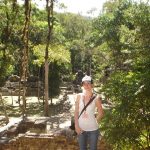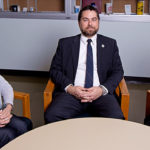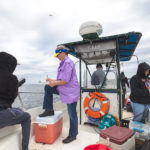Dr. Susan James Provides Intense Writing Training for Teachers
Pensacola – Dr. Susan James is an assistant professor of teacher education and educational leadership in the University of West Florida’s College of Education and Professional Studies. James is also in charge of the National Writing Project, which is a three-week summer program designed to immerse educators in reading and writing activities they can share with their own students throughout the school year.
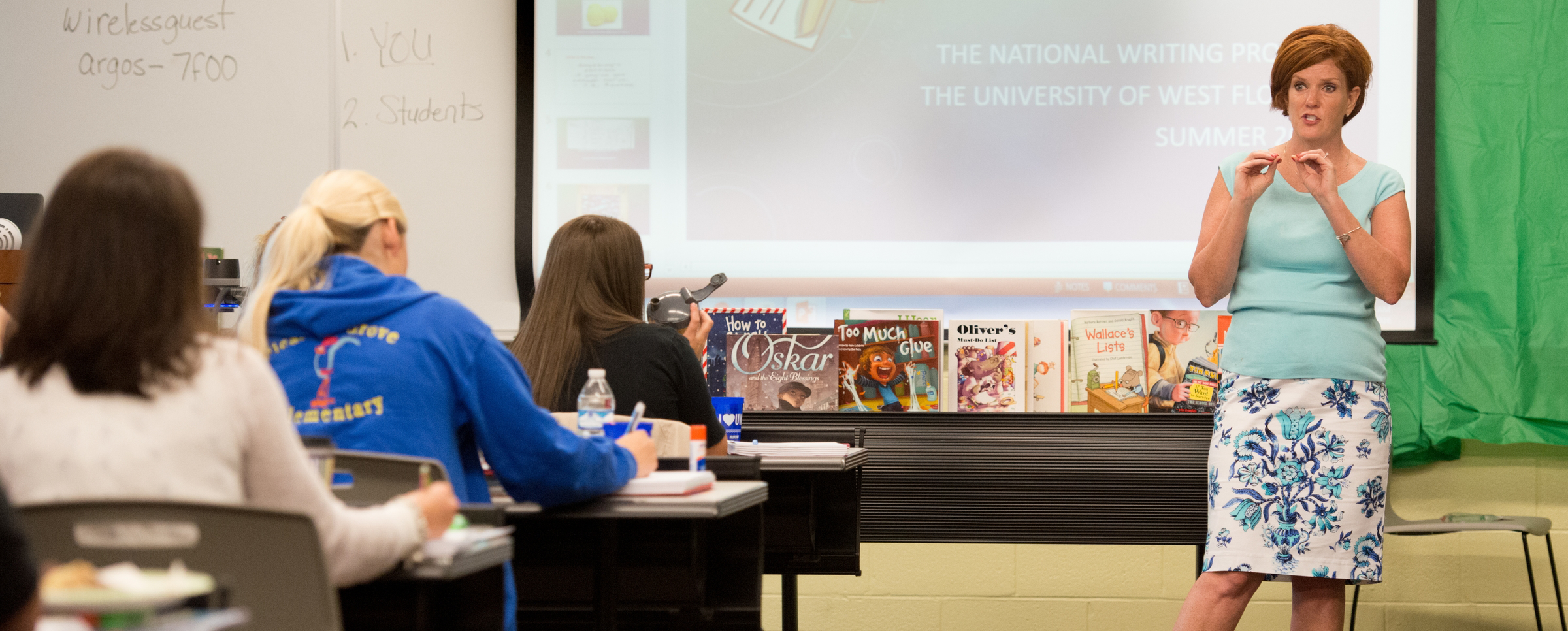
Q: Why is the National Writing Project important?
James: We are seeing major changes in education due to increased accountability. This accountability often conflicts with what teachers know to be good practice in preparing our young people to be college-or career-ready. The pressures from testing many times impacts our students, as writing becomes pushed to the back burner.
This is disconcerting, as we know the jobs of the present and future actually require more writing due to the increase in technology. Our teachers are fully aware of the mounting rigors of literacy in the 21st century, and many of them look for training that allows them to meet the Common Core State Standards, while also best preparing their students. The NWP has an Invitational Summer Institute that is 84 hours of professional development in a professional learning community.
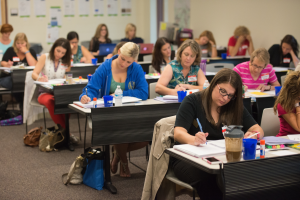 Participants work on writing assignments during the National Writing Project workshop at UWF.
Participants work on writing assignments during the National Writing Project workshop at UWF.
Not only are the teachers provided with engaging writing instruction that is relevant to today’s world, but they also spend much time writing themselves. It is critical for teachers to feel comfortable with their own writing, as students need their teachers to be models of good writing. Teachers have a strong need for this type of intense training and knowledge of creating a community of writers.
Q: What is your educational background?
James: I started my career as an elementary school teacher after graduating from San Diego State University. As life is always sure to do, a few curve balls thrown propelled me into middle-school education, and I was a middle-school language arts teacher for 15 years. I have taught across the U.S. in diverse educational settings, so I have a good pulse of our educational arena and the many needs of our teachers and students. I went on to obtain a master’s degree at UWF in reading education. Under the mentorship of the great professors at UWF, I was encouraged to obtain my Ph.D. in reading and language arts at Florida State University.
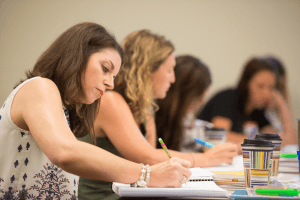
Q: How did you know you wanted to teach?
James: I knew I wanted to be a teacher before I even started kindergarten. My maternal grandmother taught school for over 40 years, so I think it truly comes by me honestly. My mother bought me a small chalkboard and some chalk, and my first students were a stuffed turtle and a mouse, named Mousey. Both are still with me today, and I have even written and shared stories about Mousey during the NWP. He is a reminder of staying the course in teaching, as I know my students’ best interests must always come first.
Q: What do you consider to be some of the highlights of your career?
James: It amazes me that just when I think I have hit the pinnacle of my career, I am afforded another great experience. I think it is the compilation of all these opportunities that has made my career a great one. Teaching on the border of Mexico and in some inner-city schools and then working in the best schools in our nation was another learning experience that taught me a lot.
Honestly, starting the National Writing Project at UWF seems to be the great reward for my 25 years of educational experience. Being able to work with teachers and then conduct research by visiting their classrooms allows for constant changes to be made to our institute. Without this time in the field, I cannot meet the needs of the teachers and students. UWF has afforded me grant opportunities and the support needed to continue in the greatest field of all: educating our nation’s youth.
Q: What advice would you give students who want to be professional educators?
James: I just finished writing a chapter of a book that was co-written with professors at the University of North Carolina and Liberty University, so this is a question I have spent a great deal of time considering. First, I would tell them they must love their content area, but they must also love their students. Without that human connection and the creation of community in the classroom, students will not learn. I would also tell them that the skill that is most difficult to navigate these days is the constantly changing educational arena. Flexibility is key. Not only do they face federal and state changes, but the students are changing due to new technologies and a new type of society. This should be a challenge that is seen as fun. No day is ever the same, so the job is not only the most rewarding, it is one that challenges and keeps one on his or her toes.
Excerpts from the Experts is a monthly feature that highlights research conducted by UWF faculty.

